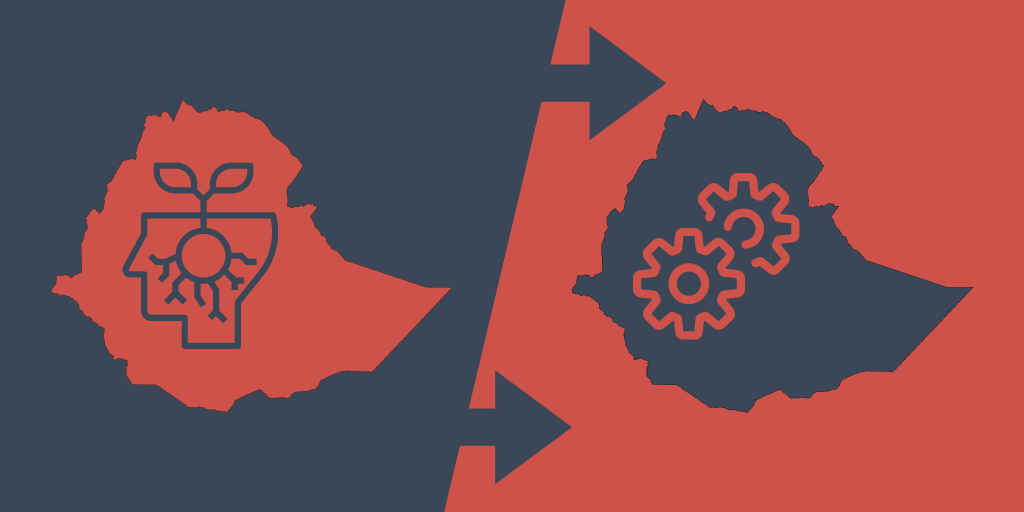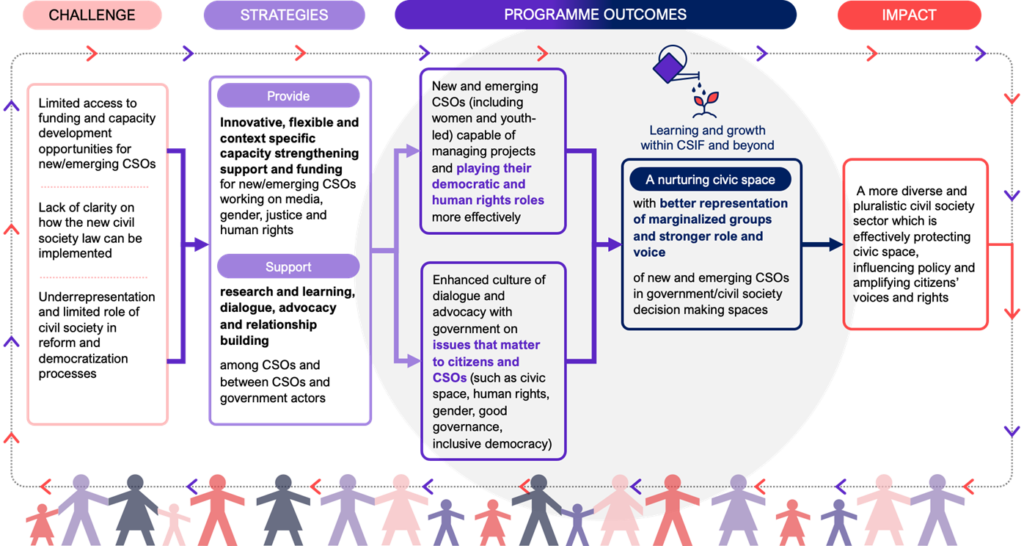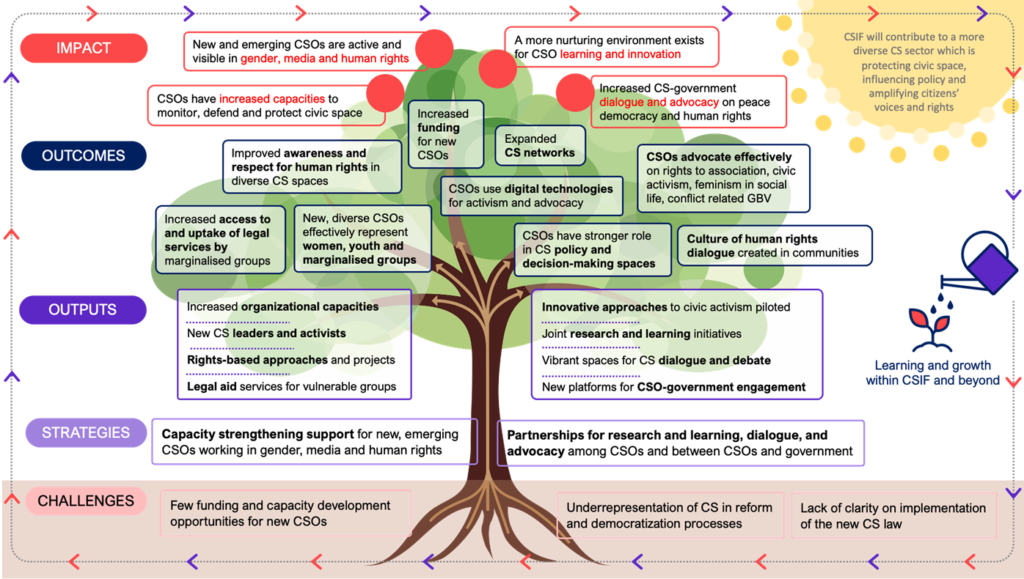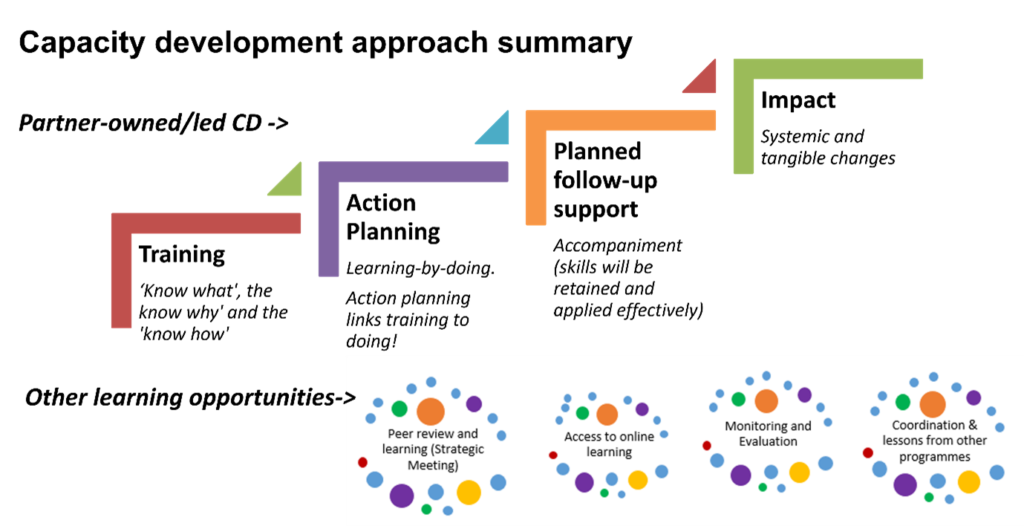
By Paul Knipe
Paul Knipe gives an update on the Civil Society Innovation Fund, funded by Agence Francaise de Développement (AFD) as it moves fully into implementation.
The first few months of 2023 have seen significant developments for the Civil Society Innovation Fund (CSIF) programme. Following an inception period that began in April 2022, the fund is now fully into its implementation phase.
The CSIF is funding three programmes in Ethiopia, with the aim of contributing to a more diverse civil society sector which is protecting civic space, influencing policy and amplifying citizens’ voices and rights. The first focuses on promoting inclusiveness in society through rights-based research, dialogue, and advocacy. The second is centred around advanced human rights through legal aid services, and the third is a civil society engagement programme.
Each of these programmes is led by a newly established consortium. In total, the CSIF brings together 15 civil society organisations (CSOs). Significantly, many of these organisations began as activist groups and formally registered as CSOs following Ethiopia’s civil society proclamation in 2019.
Technical and management support for the CSIF is provided jointly by AGAR and INTRAC. This includes a programme of training and learning accompaniment to enhance the effectiveness of these relatively new organisations. We also closely monitor the changing security situation in Ethiopia which, along with continuing high levels of inflation, are ongoing concerns. Budgets and workplans are adapted to ensure the safety of staff and participants, and financial viability in responding to changing costs.
Upcoming activities
Despite contextual challenges in Ethiopia, the next six months are expected to be a period of intense activity. Some of the services and support that form a part of the CSIF will be new to Ethiopia.
The promoting inclusiveness programme will begin a variety of activities involving a wide range of people and organisations. It will undertake training for journalists, and capacity strengthening for emerging and grassroots CSOs as well as associations and labour unions. It will also strengthen the capacity of informal youth groups and emerging civil society actors to protect fundamental freedoms. A new platform will be built for human rights defenders in a selection of universities, to address gaps in conflict-related sexual violence support. Some of the activities will have a specific geographic focus – for example promoting democratic transition and human rights in towns around Addis Ababa, strengthening inter-community dialogue in the Oromia region, and supporting grassroots women’s movements in both the Oromia and Amhara regions.
In the coming months, the civil society engagement programme will build a fellowship for emerging civil society leaders, and will develop and launch an online network programme for emerging CSOs. Other activities will include digital activism training and the first annual civil society awareness and activism campaign. Finally, the advancing human rights programme will establish legal aid services in a selection of police stations across Ethiopia, and will commence training for paralegals.
These activities will help the CSIF achieve its Theory of Change and Theory of Action, which were both developed in partnership with the CSOs during the inception phase.


Plans for participatory learning
During the inception period, our partner AGAR carried out organisational capacity assessment and held discussions with the CSOs, leading to a capacity development plan tailored to the needs of each organisation. This was discussed and endorsed at a workshop with all partners in Addis Ababa in February 2023.

The plan priorities a handful of areas to focus on over the coming couple of years. Notably, financial management training and accompaniment has already begun. The sequencing reflects and recognises the constraints on CSOs’ time and applies a logical flow between thematic and technical areas. The CSOs involved in the CSIF already have strong expertise in their areas – including human rights and advocacy. Reflecting this, the learning approach is designed to incorporate and build on their expertise through peer learning and leadership.
We are also merging thematic and technical; for example, how rights-based or gender sensitive approaches can be applied to and enhance technical aspects of organisational development such as planning, project cycle management, and results-based management.
This will provide practical, evidence-based training on key areas relevant to all participants, followed up by individual accompaniment and mentoring, that will respond to specific needs, challenges, and opportunities. Other learning activities and spaces will enhance the capacity development plan. For example, quarterly, informal learning and reflection sessions will bring together the CSOs to share experiences from programme delivery and training and accompaniment.
For more information about the three programmes, see the CSIF website, or contact Paul Knipe: pknipe [at] intrac.org